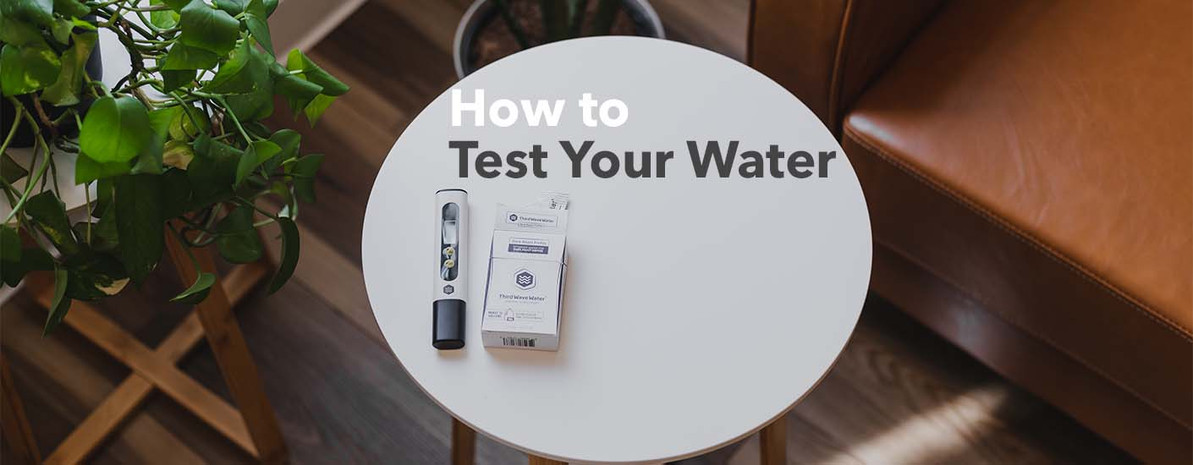Testing Your Water
Just as there are certain standards that must be met for drinking water, there are also standards for the water you use for brewing coffee. When you think of the makeup of water, Hydrogen and Oxygen, or H2O, is likely what comes to mind. Yes, that is the molecular makeup of a water molecule, but when it comes to what's really in your water, that's only the tip of the iceberg. Water contains countless minerals that originate from the ground and soil, and in the case of tap water, additional treatments like chlorine. These are typically fine for general drinking water consumption, but the water you use in your coffee abides by an even higher standard.
According to the Specialty Coffee Association of America, optimal water for your coffee must fall under a certain set of rules.
| Characteristics | Target | Acceptable Range |
|---|---|---|
| Odor | Odor Free | |
| Color | Clear | |
| Total Chlorine | 0 mg/L | |
| TDS | 150 mg/L | 75-250 mg/L |
| Hardness | 4 grains | 1-5 grains |
| Total Alkalinity | 40 mg/L | At or near 40 mg/L |
| pH | 7 | 6.5-7.5 |
| Sodium | 10 mg/L | At or near 10mg/L |
But how does one determine where their water falls in comparison to these requirements? There are numerous water treatment options designed specifically for coffee, but how do you know which works best for you?
Well, you have to test it.
We offer several testing kits here at Prima, each helping to meet a certain set of need. So we're are going to break down what you’re looking for in your water, what it does to your coffee, and your options for testing.
So, what does this mean?
Obviously you don’t want your water to have an unusual color or unpleasant odor. If you wouldn’t drink it, you probably shouldn’t use it for your coffee either. Additionally, you don't want any trace amounts of chlorine present in it either, which is often found in tap water. The Peak Water Pitcher is a reliable solution if you wish to optimize your tap water for brewing.
As stated previously, there is an abundance of minerals present in water, and although these minerals can contribute to a delicious and well-balanced cup of coffee, if there are too many, i will have the opposite effect. SCAA recommends a TDS reading of 150 mg/L or parts per million, with an acceptable range falling between 75-250 mg/L. What this means is the number of total dissolved solids, or ionized solids such as salts and minerals, does not surpass those levels. Because these solids increase the conductivity of the water, the TDS meter is able to quantify it and give a reading that indicates the number of solids present per one million water particles. This number, however, does not specify what kind of solids are present in the water.
Next is the hardness of your water, and this number varies across the country. Hardness is comprised of dissolved minerals, primarily magnesium and calcium, both of which can affect the flavor of your coffee and condition of your equipment. An ideal amount of calcium and magnesium — roughly 4 grains — can enhance the flavor of your coffee, but too much or too little can leave you with an unpleasantly bitter or weak cup of coffee. These minerals are also the culprit for scale buildup in your machines.
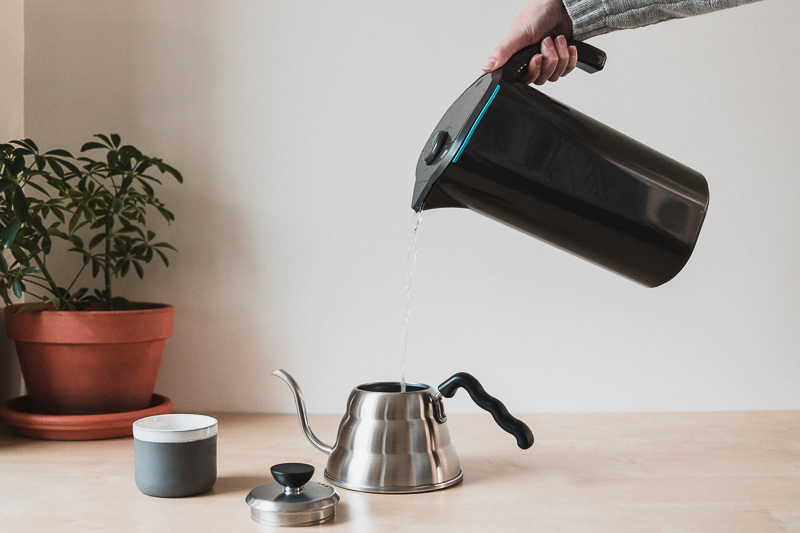
The total alkalinity is the measurement of the concentration of negative ions in your water. Compounds such as bicarbonates remove hydrogen ions from the water and work to balance the acidity. Too much acidity will affect your coffee extraction and flavor.
The ideal pH of your water should be a neutral 7. Water with a lower pH means there is more acidity in your water which can leave our coffee tasting bitter, conversely, water with a higher pH produces coffee tasting flat and lacking in distinct flavor notes.
Lastly is sodium. Sodium, or salts, universally contain qualities that reduce bitterness and increase sweetness when present in small quantities — so much so, that chef Alton Brown declared that adding salt to your coffee would neutralize the bitterness. However, we believe that's up for debate — at another time, of course. Ultimately, SCAA recommends a sodium level of 10 mg/L for the best results.
So now that we’ve broken down the elements to test for and why they matter, it’s time to explore the options available to see where your water falls in comparison. We offer a variety of water testing kits to help you figure out what’s going on with your water and what route you need to take to optimize it for brewing.
Testing Options
Peak Water Hardness Test Strip
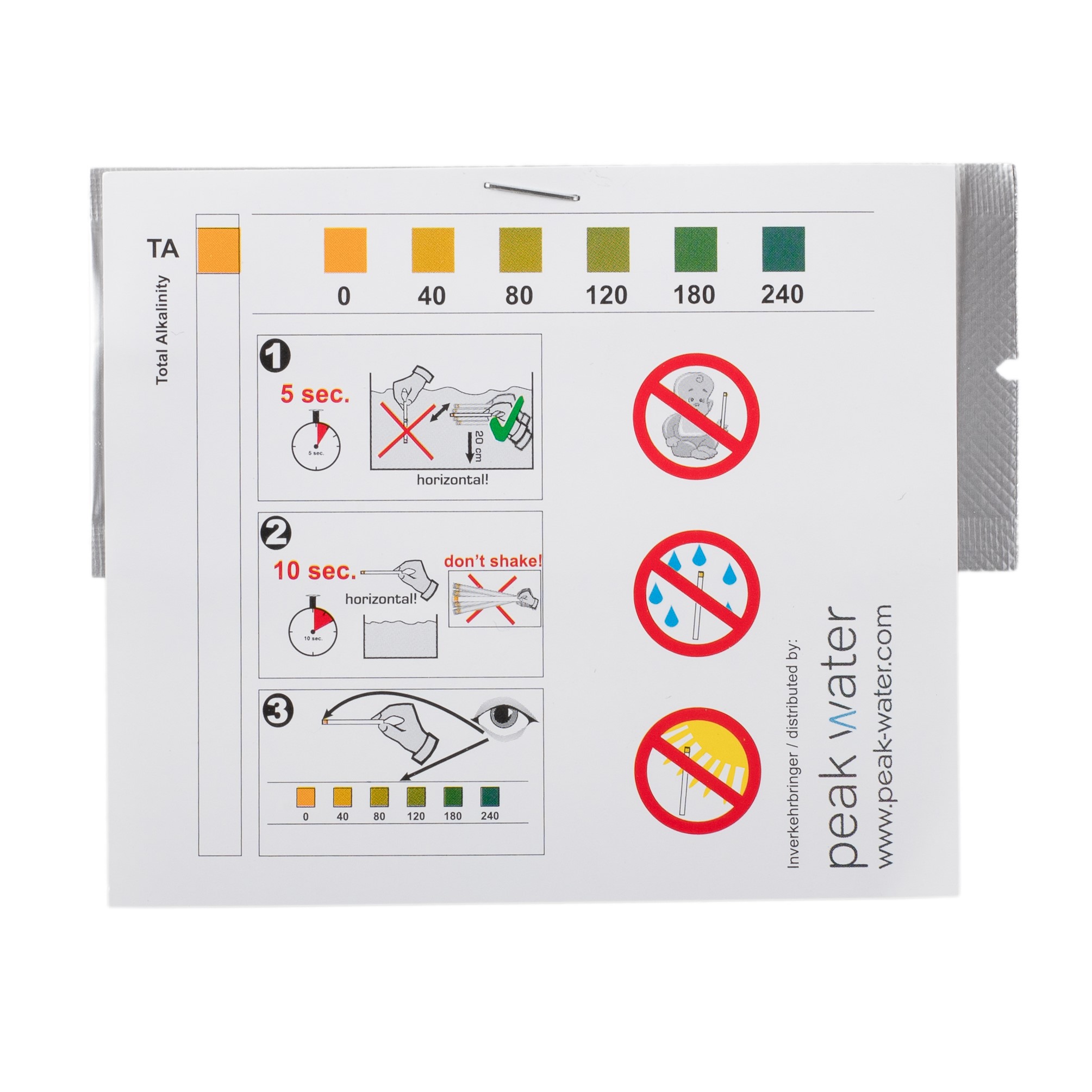
Third Wave Water TDS Meter
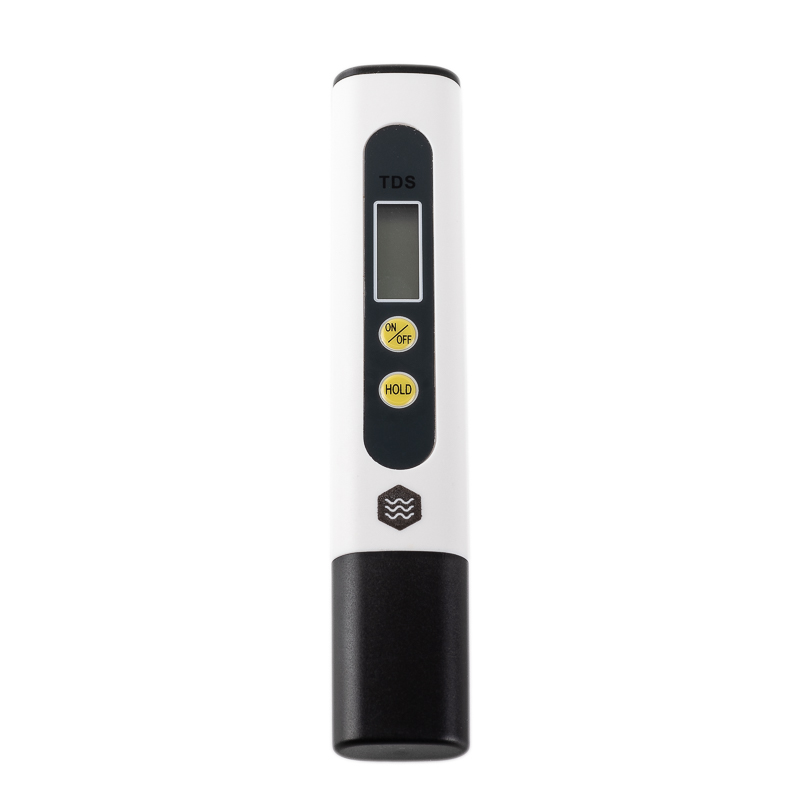
Peak’s water test strips only test the carbonate hardness of your water while correlating directly with the Peak Water Pitcher dial. With or without the use of the Peak, these strips are an easy and convenient way to test your water’s unique hardness.
Third Wave Water's TDS Meter measures the amount of minerals present in your water, making it is a useful tool for verifying the purity of water before adding a solution like TWW packets. It’s also a great addition if you love to geek out over water like we do.
OptiPure Water Test Kit
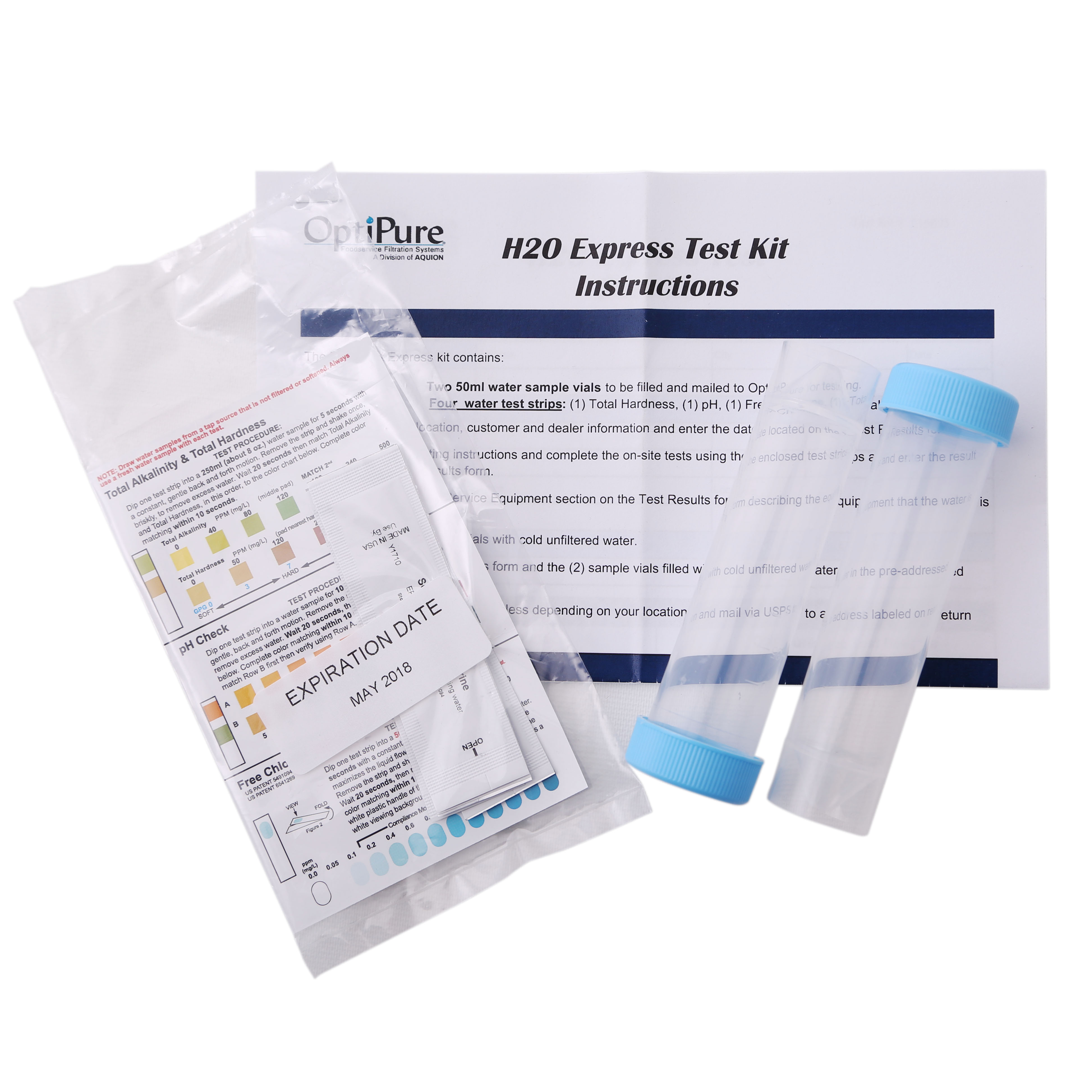
CityCheck Standard Water Test Kit
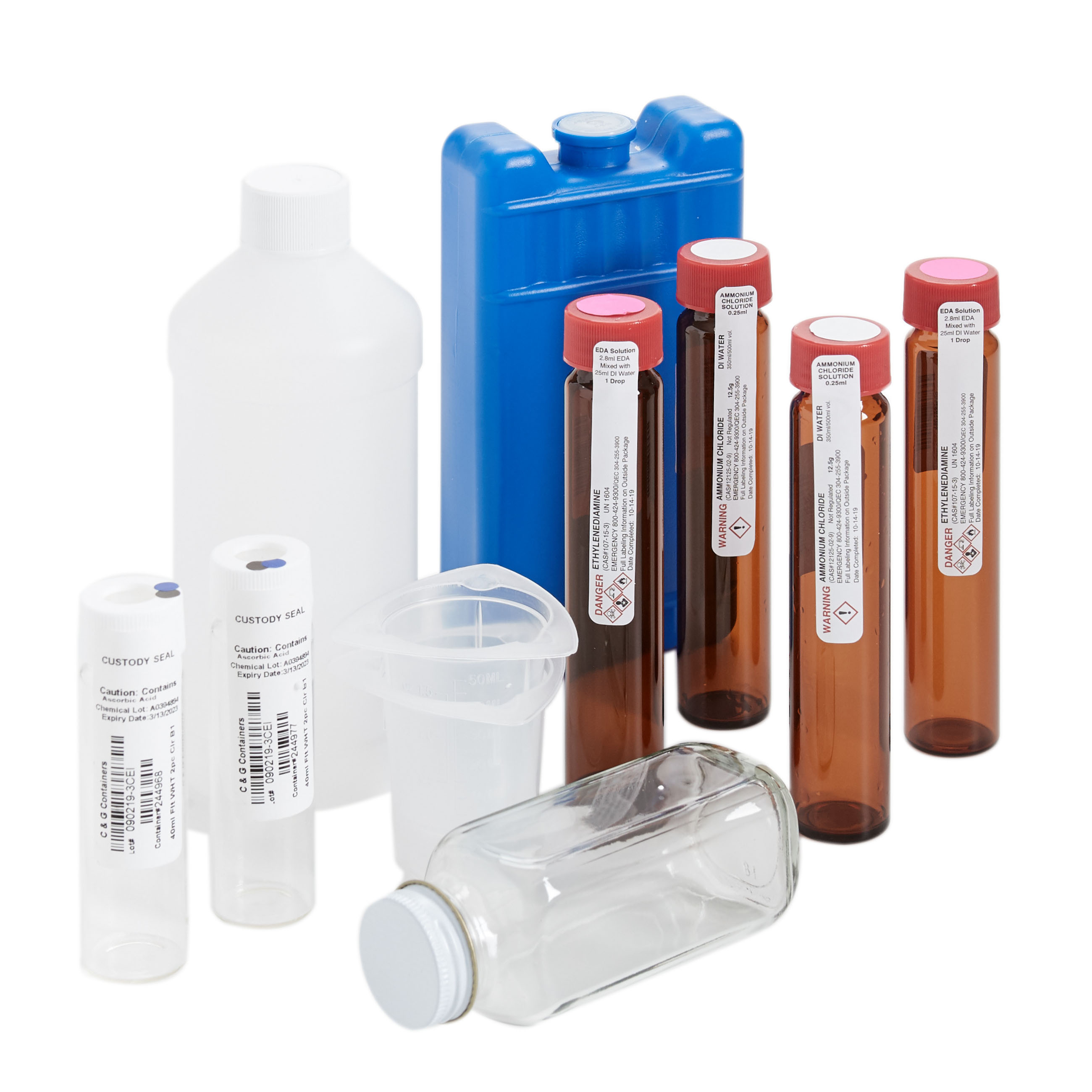
This testing kit is a more comprehensive option that tests for hardness, pH, free chlorine, total chlorine, total dissolved solids (TDS), alkalinity, chloride, chloramines, and silica. You collect samples of the water and mail them to OptiPure’s water lab, and within 1-2 weeks the lab test results and a treatment recommendation and quotation will be emailed to you by Prima.
This testing option provides a broad and highly accurate analysis of your water composition testing for 20 metals/minerals, 7 inorganic compounds, 4 physical characteristics, 16 disinfectants and disinfection byproducts, and 47 volatile organic compounds. Once your results are processed, a Prima representative will provide a customized recommendation for water treatment.
Knowing your water is the first step in optimizing it for great brewing! We offer a wide variety of treatment options compatible with both home and commercial brewing. If you’d like to learn more about how water affects your coffee, check out our Introduction to Water and Water for Coffee vs. Espresso.
